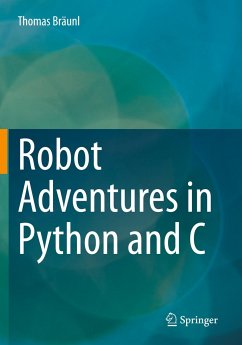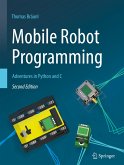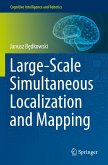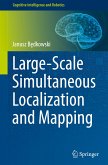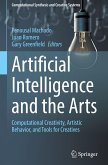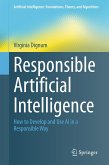In this book the author stresses software as the most important topic in modern robotics. In particular the book concentrates on software for mobile robots, and the author demonstrates how inexpensive solutions can be constructed by mounting Raspberry Pi controllers and cameras onto model cars or other simple mechanical drive systems. He introduces EyeSim-VR, a freely available system that can realistically simulate driving, swimming, diving, and walking robots. The emphasis throughout is on algorithm development and all software assignments can run on real robot hardware, as well as on the simulation system presented.
The book is suitable for undergraduate and graduate courses in artificial intelligence and robotics, and also for self-study by practitioners. All software used in this book, including all example programs, can be freely downloaded online, with native applications for MacOS, Windows, Linux, and Raspberry Pi.
The book is suitable for undergraduate and graduate courses in artificial intelligence and robotics, and also for self-study by practitioners. All software used in this book, including all example programs, can be freely downloaded online, with native applications for MacOS, Windows, Linux, and Raspberry Pi.

